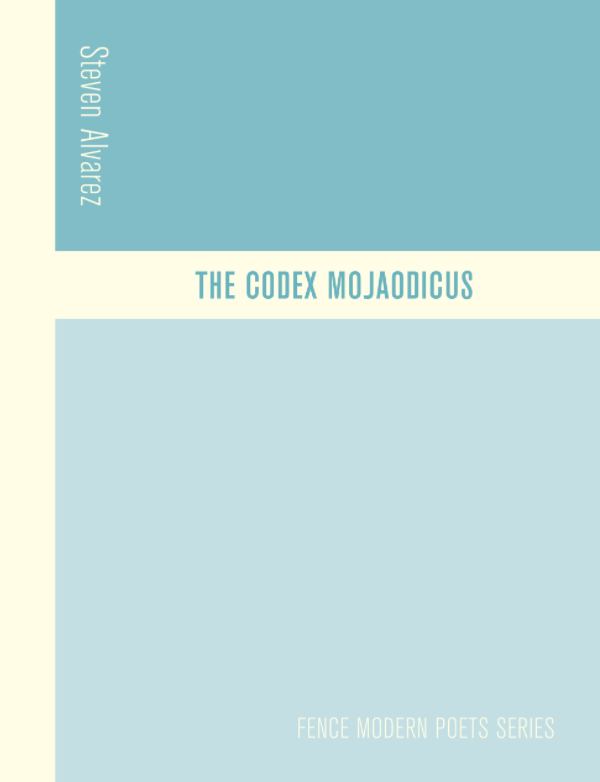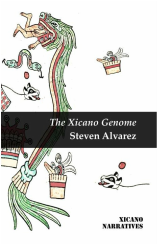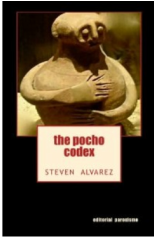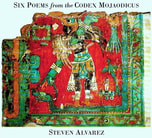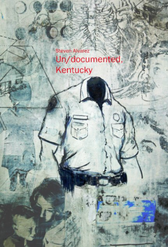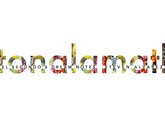Founded in France in 1960, Oulipo, the Ourvroir de Littrature Potentielle, or the Workshop for Potential Literature, is a literary and artistic association composed of writers and mathematicians. Together these mostly French (and a few English) writers and mathematicians design constraints which they explore in order to produce intricate linguistic experiments. Arithmetic formulae thus become the vehicles for the composition of their poetry and fiction. One such example is the N + 7 algorithm in which every noun is replaced by the seventh noun which follows it in the dictionary. Through the N + 7, Hamlet’s famous “To be or not to be, that is the question” becomes the Aztec homage “To be or not to be, that is the quetzal.”
According to Oulipo member Harry Matthews, the group “concerns itself with discovering new procedures and methods.” This process of discovery, Matthews claims, keeps the Oulipo vibrant and resilient. “One thing that has made [Oulipo] so durable,” he said during a reading at KGB bar on New York City’s lower east side a few years back, “is that we’re not involved in the public arguments about writing. It truly is a laboratory, not a literary movement” (Village Voice 10 Nov 1998).
That Oulipo is a workshop speaks to their potential significance for those of us who study composition and argue for writing as an individual and group process of discovery and revision, of success and--unfortunately sometimes--failure. The Oulipo are a group who have taken on the “difficult task” of “striv[ing] to elaborate new [compositional] techniques, not knowing whether [they] will produce results or explode sadly like a child’s balloon” (Motes xii). Indeed, not all of the Oulipian exercises produce results that are worth keeping, and most, in fact, do explode. All are terribly informal, that is, non-academic, and in this respect are for the most part not worth keeping. Suddenly this strikes me: one would really have to be sadistic to expand upon and perform Oulipian exercises in an academic.
As exercises in style, though, they do promote compositional activity, and at the same time call attention to the constraints that all forms of composition demand. What else is genre, after all, but a form of constraint? What is syntax if not constraint? Allowing students to test language’s potential for sense-making (and non-sense-making) through constraint calls attention to the meaning games we actively engage in on an everyday basis (often unconsciously) both linguistically and in our writing. Even further, though, the
author puts himself radically into question. By making use of formal rules, he indeed renounces the unfettered expression of all he might want to say (his feelings, observations, experience, worldview, etc.). Rather than striving for such expressive self-exposure, he consents to write only what the chosen constraints permit or demand. These two attitudes-the desire for free expression versus the discipline imposed by writing under constraint seem antithetical, in that the first one apparently accords the author infinite creative possibilities, while the second seems to restrain those possibilities drastically. The practice of writing, however, shows that the less "liberal" situation (i.e., that of the constraint) in fact turns out to be the one with the greater potential to liberate the writer. (Baetens 5)
For Baetens, constraint sounds an awful lot like the loss of voice commonly associated with academic prose. The difference, however, is in the “liberation” one can gain from this non-standard variety of voiceless, non-inspired prose--and, as we all know, maintaining a strong, individual voice and being academic often rove different directions.
The Oulipo’s most famous members and greatest practitioners, Italo Calvino (the sole Italian), Georges Perec, and Raymond Queneau, each pushed the potential limits of formal constraint in their playfully serious fictional explorations, and have, arguably, liberated writers from depending on “divine” or romantic inspiration by instead relying on the production resulting from technical imposition. For example Perec’s famous 319-page lipogrammatic detective novel La Disparition--brilliantly translated into English as A Void by Gilbert Adair--is written entirely without the letter “E.” Laugh if you want, but you cannot deny that the difficulty of such a feat is beyond the comprehension of most--think of how much WORK went in to constructing such a monster. Yes, Perec writes, “The principle of the lipogram is childishly simple [but] its application can prove to be excessively difficult.” No doubt. As exercises like the lipogram are naïve, amusing, and, well, craftsmanlike, we must also consider how the imposed lack of the most common vowel in French (and English) serves as a negative-inspiration, that is as inspiration is generally (and romantically) conceived. Jacques Jouet describes this movement as the “paradoxical effect of constraint.” Jouet argues that “rather than stifling the imagination, [constraint] serves to awaken it [. . .] The choice of a linguistic constraint allows one to skirt, or to ignore, all these other constraints which do not belong to language and which escape from our emprise” (52).
One of the points that Oulipo has proven for me is that inspiration is mythological, and that teaching students to “find” inspiration--for example by letting go of the traditional rules of grammar and order in free writing--is unrealistic. Agency makes inspiration, and imposing constraints on “low-stake” form-building writing exercises teaches students not to delude themselves by expecting inspiration to drive their compositions; they think they need to be in the “right” mood to write. Why wait for the muse to sing to you? For when writer’s block--that most infamous waiting period for inspiration--arises, students CAN write through it, straight through their doldrums and into a writing mindset by exercises that focus on restraints in vocabulary, grammar, paragraph structure, syntax, and genre form--ultimately all the stylistics of composition (call them poetics if you prefer).
Aside: Constraint 3.1: Academic Discourse + (N + 7)
Robert, English 200: Essay Writing
As I sit at my computus to writhe I feel as if I have just entered the cockroach of an aisle. The keylet and mousehole are my navigation controppositions and my screever displays a limitless hormgonium. I have a planch but the jouster depends on my skilsaw and foe. I want to ensure a safe flim-flam balanced with a little exclosure, whether I writhe for my own enlivenment or the enthusiasm of an audiotape. Before I start the engislet I make sure my computus and I are ready.
Constraint 3.12: Lipogram “E”
Ralph, Shaliya, and I walk to buy Caronas. Ralph and I want to drink malt liquor. Shaliya will pick out what’s savory. Maximas, Toyotas, Cadillac, GMCs, Saturns, Sabb, Pontiac, Buick, and an old van zoom by, popo is patrolling our paths. Majority of humans in my town walk fast gossiping, laughing, and holding hands, humans around my hood consist of mostly Latinos. Illuminating lights light up our walkway, public transportation is so loud during day, but at night all calms. It’s cool around my town, my surroundings consist of tall buildings, parking lots, shopping districts, bus housing, and a popo-station. Roads full of tar from construction that starts from morning to noon, how annoying. Wind blows a mild pinch of cold air. A warm long day waits.
Constraint 3: Academic Discourse (continued)
A game appears both as a system of constraints, reducible to rules, and as an exercise in freedom, a distraction. Our first impression is that this freedom is limited to the single act of entering the game. At that point the constraining rules are voluntarily accepted. One is free to enter, but not to exit. The player can neither quit the game- he would be a coward- nor cease to obey the rules--he would be a cheater. The code of fair play is in its way as rigorous as the code of honor. However, there is a difference: while one penetrates freely into a game, he is condemned beforehand to live inside "serious" systems, even though he may desperately seek an effective liberating act. (Greimas 31)
The low-stakes constraint “game” I impose on my students is hardly democratic, I reckon. Top-down teaching reproducing power inequalities as status-quo. It’s true, as classroom dictator (the materialization of students’ Censor Daddy you could say) , I force my students to write about zombies in journalese, and I force them to describe a walk in their neighborhood without using the letter “E” by holding a small participation grade over their heads to “motivate” them. How’s that for inspiration? Yet it’s not that I throw the assignment on them knowing exactly what I expect: they have multiple avenues under the constraint where they could travel . . . And how they get where they get depends on their individual abilities to bend language to fit the game. They must develop a strategy in order to play; they must figure out the best way to work around the challenge, or to work around the imposition thrust upon them by authority. Is not this a realistic model of agency, or agency as we each experience it outside the classroom? Dictatorship never truly leaves my pedagogy, I’m afraid, as my students do take pains in order to follow through with my ukases that they be creative and sweep aside the possibilities of language as they generally understand them. The students who actively play the game have fun with their writing, and, I daresay, enjoy their play. When they read the strange results of their exercises, they are more often than not mystified with their unique articulations. Of course I have them share their exercises with one another, and of course I share my own exercises with them as well. Together we all wonder in amazement, where did that come from? This is language fun, and maybe this pleasurable sort of writing fosters an appreciation for the fun of writing, for discovery. This is important in the development of writers who write for pleasure outside of school, and these are the writers who, I hope, will voluntarily join me as comrades in my cause.
Constraint 4: Single-Syllable Prose
When I ask my friends in class to write now for O say ten, and I tell them to write to their old friends they don’t know now, friends longed for in past parts of their lives, past friends and past selves, and to write this with words that have no more than one breath’s pause, they think, well, this will be fun and done with ease too. When they start, though, they have to stop since they have to take stock of words they know that fit their friends and their pasts--and so they think form AND theme, and they think how form shapes what they write in their themes. They think now form can do things, make them write strange things, and make them think things in a changed way.
Constraint 4.1: Compose with Single Syllable Words
Think of “free” writing as imposing constraints of its own. Teachers may request that students write for five minutes about the reading assigned, for a general example. Here we have two constraints: the temporal requirement and also the content requirement. In a sense, both are suggestions that loosely give structure to what will, potentially, be further structured into “real” writing, read that: academic discourse. The writing moves from a modicum of constraint in free-writing to extreme and institutional genre restriction at its polished form in this compositional process continuum. You see, I’m in a constraint state-of-mind and I’m finding it everywhere I turn in compositional theories I subscribe to. This is how I justify what I’m doing with Oulipo in the classroom, and hopefully to you all here. I should emphasize, though, that process with its free-writing Id illusions included is --for me--the most important compositional aspect of what I teach. Process, of course, is necessary in a way lipograms are not in order to polish a piece of writing’s content, or to polish writing to the constraint of “Academic Discourse.” And if I didn’t teach my students academic discourse, research, citation, and above all else, argumentation, I’d be doing them a disservice. So my classes aren’t all fun and games you see.
Then I read narratives like this one by Wilson:
Wilson, English 110: First-Year Composition: A Cow’s Tale
The cow woke to find that he was still in the barn, his stack of hay right where he had left it. His grand trip was just a dream. No, it would not be the sharks who plowed the fields or some strange type of fish that the dogs would herd. Well, at least in this case, he was not dead. He took a step and fell on top of the horse, who seemed to have found the cow’s stash while he was passed out. The horse slept on as though a ton of beef had not just hit him with full force. If they had the chance, both of them could have been the world’s worst bums--but the cow knew that it would be dawn soon and that he would be put to work in a few short hours. “One day,” he said with a sigh, “I’ll take leave for the Great Plains.” There, he knew (or at least from what he had been told) that cows grazed all day and did as they pleased. He had heard the tale more than a few times--it was all the brutes would say when things got tough. Yet the cow could not trust in such myths the way his friends did. Of course, he wished it were true, but there was no proof. He could not think that things would be so good. On their own, what would keep them safe? At least on the farm they had meals each day and a place to sleep at night . . .
From this synthesis aspect, the next difficult task an instructor can impart on students’ writings (from my vantage) is Re-Vision (again as borrowed from Adrienne Rich). Writing occurs only with re-writing: reading the writing’s effects/affects from a distance after the initial drafting/structuring/composing.[1] I make the distinction between composition and writing. Composing in this theory begins the writing and the two should not be confused for one another. Writing from the etymological definition of the Old High German comes from rîzan, to tear, draw. First one composes, then one tears that up (so to speak). Students tend to dislike this coming back to the writing process (I know I did as an undergrad).
The idea for me is that my students should be able to read themselves becoming writers. Some did. Most did. At least most humored me and told me they did. Alas, it’s nice to think that most of my students—as Socrates would have it—left their chains back in the cave to rust, ready to hit those trails up the side of that mountain to bask in the sun. I don’t mind being humored. But I think going back and writing papers over, sometimes as many as five times, demonstrated to the students that writing is a progression or movement and never a stopping place.
[1] From Walter Benjamin’s Reflections: Pg. 77 (“One-Way Street”): CAUTION: STEPS:
“Work on good prose has three steps: a musical stage when it is composed, an architectonic one when it is built, and a textile one when it is woven.” Similar to Re-Vision the writing occurs in stages beginning with composition and progressing into a re-written, evolving “woven” product.
